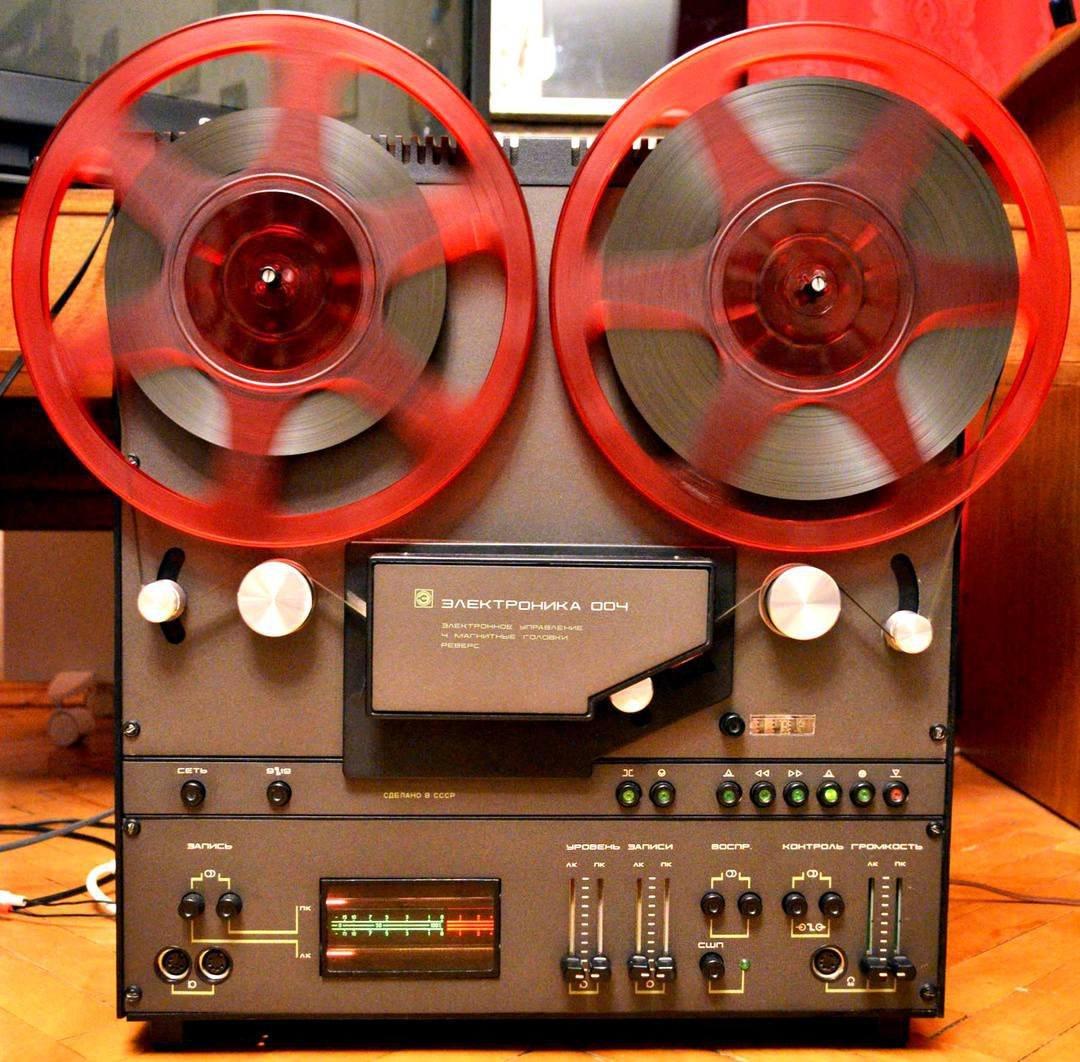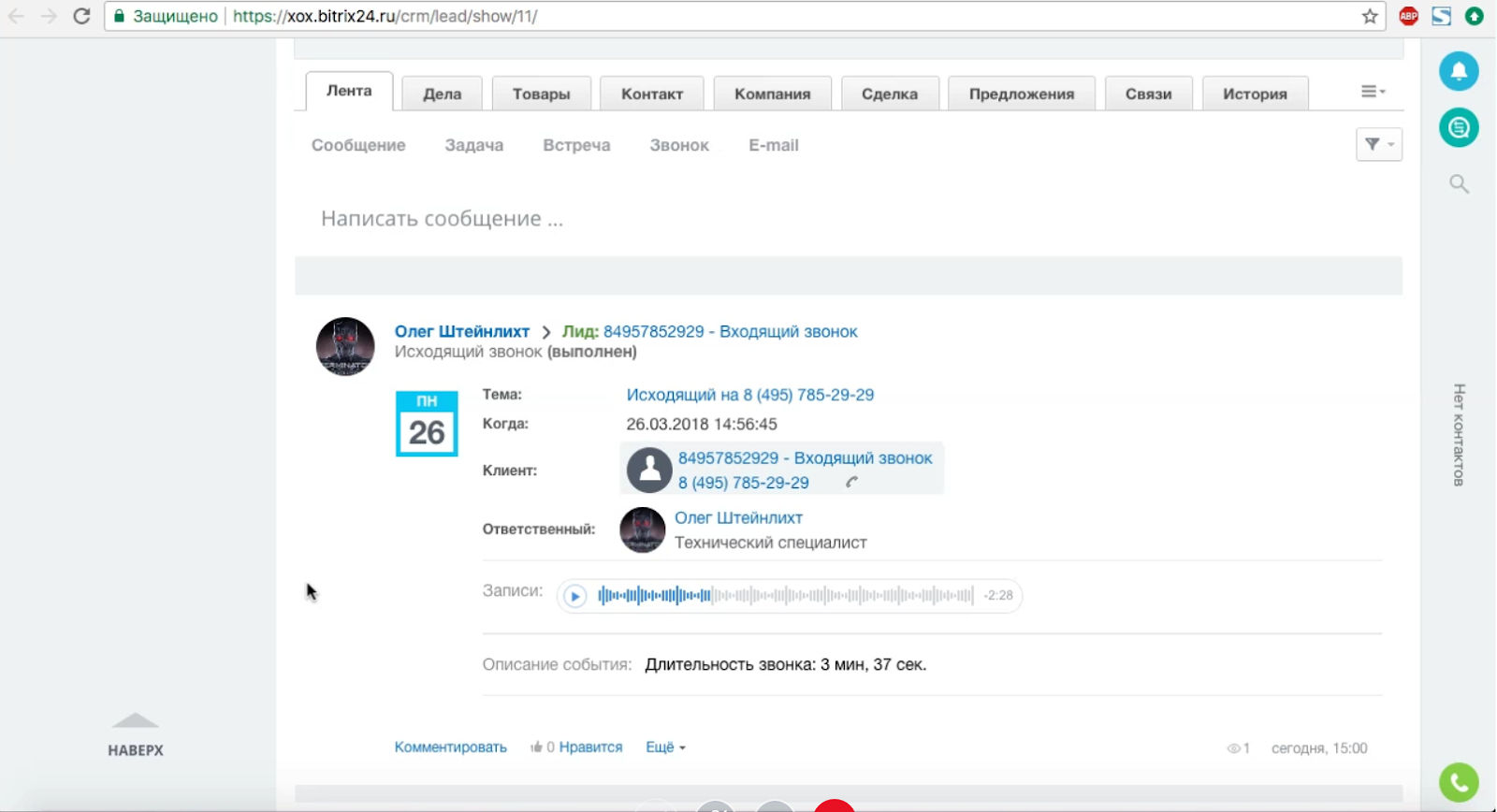Divide and conquer: differentiate access to conversation records
Recording conversations can be used for a variety of purposes - from monitoring the quality of service to "tuning" the sales process. Today we’ll talk about the role of records in the company’s business and the organization of access to them.
Some people think that only spies, hackers and the Pentagon need to record a conversation. However, in practice, recording is a very useful business tool.

When is a record really needed in the daily activities of companies? Usually when the Buyer and the Seller communicate. Their interaction can be lengthy and very complex. In telephone conversations, the buyer expresses his requirements, wishes and interests, and the seller is looking for an opportunity to offer his product or service. When some time has passed, and you already forgot what you agreed with the customer. And for additional and cross-selling, having a conversation record can help. Recording allows you to record agreements between the parties. The most benefit from the recorded conversation will be if you organize its binding to CRM, and you can listen to the recording directly from the customer’s card and / or from the order card.
As a rule, you can listen to the recording directly in the interface, download it, send it by e-mail, convert it to a compressed format (For example, converting to MP3 format saves space up to 5 times! It matters for CRM with a built-in virtual disk), and also configure automatic deletion and / or archiving.
As mentioned above, it is very convenient if there is direct access to conversation records in transaction cards or in customer cards. For example, due to integration with amoCRM, recording conversations together with Zeon IP-PBX looks as follows:

In Bitrix24 it looks like this:

And in Zeon IP-PBX it is like this:

Conversation recording system users can have different roles, for example:
However, to prevent abuse, access to records can be controlled. If you work with a professional PBX (virtual telephone exchange) or IP-PBX, it will not be difficult, because systems such as IP-PBX Zeon allow you to restrict supervisor access, record logs by administrators (an administrator like a doctor, you trust him or not ), and also prohibit ordinary users from listening to recordings other than their own.
I would like to note that in modern exchanges there are two different functions: eavesdropping-venting (assistance to the trainee) in real time and listening to the conversation recording from the recording archive, with reference to the call.
Zeon IP PBX allows you to differentiate the level of access between supervisors. A supervisor can only manage queues to which he has access. This also applies to eavesdropping. In other exchanges, this function is often “afraid” of using precisely because of unlimited access.
Practice shows that the hierarchical access system works most effectively: the head of the unit can listen to (or download) a record of any employee, the supervisor can work with records of only his department, and each employee can only listen to his own records.
In Russia, the secrecy of telephone conversations is protected by Article 138 of the Criminal Code of the Russian Federation. In short, it is only about listening to someone else's telephone conversations, as well as disclosing their contents without the consent of citizens or the permission of the court ( link to the article ).
Sincerely, The iptelefon.su
Information IP-PBX Zeon

When is a record really needed in the daily activities of companies? Usually when the Buyer and the Seller communicate. Their interaction can be lengthy and very complex. In telephone conversations, the buyer expresses his requirements, wishes and interests, and the seller is looking for an opportunity to offer his product or service. When some time has passed, and you already forgot what you agreed with the customer. And for additional and cross-selling, having a conversation record can help. Recording allows you to record agreements between the parties. The most benefit from the recorded conversation will be if you organize its binding to CRM, and you can listen to the recording directly from the customer’s card and / or from the order card.
What can I do with conversation recordings?
As a rule, you can listen to the recording directly in the interface, download it, send it by e-mail, convert it to a compressed format (For example, converting to MP3 format saves space up to 5 times! It matters for CRM with a built-in virtual disk), and also configure automatic deletion and / or archiving.
As mentioned above, it is very convenient if there is direct access to conversation records in transaction cards or in customer cards. For example, due to integration with amoCRM, recording conversations together with Zeon IP-PBX looks as follows:

In Bitrix24 it looks like this:

And in Zeon IP-PBX it is like this:

Business Tasks and Permissions
Conversation recording system users can have different roles, for example:
- The sales manager can listen to the recording to remember what the contract was with the customer, and at what stage the questions arose. This is especially true if one manager started the deal, and another brings it (rarely, but such cases do happen);
- Supervisors can use records when complaints or complaints from customers are received. After listening to the recording of a real conversation, they get the opportunity to give a reasoned answer or chastise the sales manager in case of his mistake;
- Heads of departments often use selective wiretapping of records to control the culture of communication with the client and its compliance with the rules adopted by the company;
- Coaches and coaches prefer real-life conversations to educate beginners and trainees. Here, records of successful transactions are suitable, so to speak, “exemplary”, as well as problem cases and situations.
However, to prevent abuse, access to records can be controlled. If you work with a professional PBX (virtual telephone exchange) or IP-PBX, it will not be difficult, because systems such as IP-PBX Zeon allow you to restrict supervisor access, record logs by administrators (an administrator like a doctor, you trust him or not ), and also prohibit ordinary users from listening to recordings other than their own.
I would like to note that in modern exchanges there are two different functions: eavesdropping-venting (assistance to the trainee) in real time and listening to the conversation recording from the recording archive, with reference to the call.
Zeon IP PBX allows you to differentiate the level of access between supervisors. A supervisor can only manage queues to which he has access. This also applies to eavesdropping. In other exchanges, this function is often “afraid” of using precisely because of unlimited access.
Access hierarchy
Practice shows that the hierarchical access system works most effectively: the head of the unit can listen to (or download) a record of any employee, the supervisor can work with records of only his department, and each employee can only listen to his own records.
Is this even legal?
In Russia, the secrecy of telephone conversations is protected by Article 138 of the Criminal Code of the Russian Federation. In short, it is only about listening to someone else's telephone conversations, as well as disclosing their contents without the consent of citizens or the permission of the court ( link to the article ).
WE STRONGLY RECOMMEND TO NOTIFY THE CLIENT ABOUT THE RECORDING OF THE TALK, WHEN A CALL IS RECEIVEDHow do recording business conversations help you? Write in the comments.
Sincerely, The iptelefon.su
Information IP-PBX Zeon
